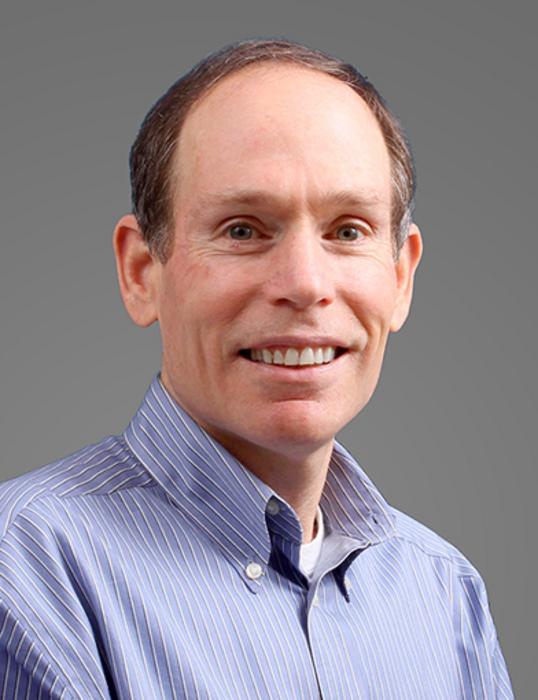Winston-Salem, North Carolina – April 2, 2024 – Dr. Shay Soker, a distinguished professor at the Wake Forest Institute for Regenerative Medicine (WFIRM), has been honored with induction into the 2024 Class of College of Fellows for the American Institute for Medical and Biological Engineering (AIMBE). This recognition highlights Dr. Soker’s contributions to the field of regenerative medicine and his dedication to advancing biomedical engineering.

Credit: Wake Forest Institute for Regenerative Medicine
Winston-Salem, North Carolina – April 2, 2024 – Dr. Shay Soker, a distinguished professor at the Wake Forest Institute for Regenerative Medicine (WFIRM), has been honored with induction into the 2024 Class of College of Fellows for the American Institute for Medical and Biological Engineering (AIMBE). This recognition highlights Dr. Soker’s contributions to the field of regenerative medicine and his dedication to advancing biomedical engineering.
Dr. Soker’s extensive research portfolio spans various critical areas within regenerative medicine, including the identification of novel cell sources, the development of innovative scaffolds for tissue engineering, tissue neovascularization, real-time imaging technologies, and the fabrication of bioengineered tissues for both developmental and disease modeling.
Induction into the AIMBE College of Fellows stands as a top achievement for medical and biological engineers, reserved for the top two percent in these fields, recognizing individuals who have made exceptional contributions to research, practice, or education in engineering and medicine. The AIMBE acknowledges the pioneering work of researchers advancing new technologies and methodologies, whether through traditional fields or through innovative approaches to bioengineering education.
“Dr. Soker’s pioneering work has significantly advanced our understanding of tissue regeneration and has led to transformative breakthroughs in the field. Notably, Dr. Soker’s research has led to the use of vascularized scaffolds for whole organ bioengineering, offering promising prospects for the development of viable organ replacements and regenerative therapies,” stated Dr. Anthony Atala, Director of WFIRM.
Commenting on his induction into the AIMBE College of Fellows, Dr. Soker expressed profound gratitude and emphasized the collaborative efforts of his team and colleagues. He stated, “It is a tremendous honor to be recognized by the AIMBE, and I am deeply grateful for the support of my colleagues and collaborators who have contributed to our shared pursuit of advancing regenerative medicine.”
Fellows with AIMBE include members from over 30 countries employed in industry, healthcare, academia and government.
Dr. Shay Soker received his PhD from the Technion-Israel Institute for Technology, followed by a postdoctoral fellowship at the Children’s Hospital Boston and Harvard Medical School. He was then recruited to the Laboratory for Tissue Engineering and Cellular Therapies and promoted to Assistant Professor of Surgery at the Harvard Medical School. Currently, Dr. Soker is a Professor of Regenerative Medicine and the Chief Science Program Officer at the Wake Forest Institute for Regenerative Medicine.
About the American Institute for Medical and Biological Engineering (AIMBE):
AIMBE is the authoritative voice and advocate for the value of medical and biological engineering to society. AIMBE’s mission is to recognize excellence, advance public understanding, and accelerate medical and biological innovation. No other organization brings together academic, industry, government, and scientific societies to form a highly influential community advancing medical and biological engineering. AIMBE’s mission drives advocacy initiatives into action on Capitol Hill and beyond. For more information, visit www.aimbe.org.
Media contact: Charlie Kim, [email protected]
About Wake Forest Institute for Regenerative Medicine: The Wake Forest Institute for Regenerative Medicine is recognized as an international leader in translating scientific discovery into clinical therapies, with many world firsts, including the development and implantation of the first engineered organ in a patient. Over 500 people at the institute, the largest in the world, work on more than 40 different tissues and organs. A number of the basic principles of tissue engineering and regenerative medicine were first developed at the institute. WFIRM researchers have successfully engineered replacement tissues and organs in all four categories – flat structures, tubular tissues, hollow organs and solid organs – and 16 different applications of cell/tissue therapy technologies, such as skin, urethras, cartilage, bladders, muscle, kidney, and vaginal organs, have been successfully used in human patients. The institute, which is part of Wake Forest University School of Medicine, is located in the Innovation Quarter in downtown Winston-Salem, NC, and is driven by the urgent needs of patients. The institute is making a global difference in regenerative medicine through collaborations with over 500 entities and institutions worldwide, through its government, academic and industry partnerships, its start-up entities, and through major initiatives in breakthrough technologies, such as tissue engineering, cell therapies, diagnostics, drug discovery, biomanufacturing, nanotechnology, gene editing and 3D printing.
Media contact: Emily Gregg, [email protected]



